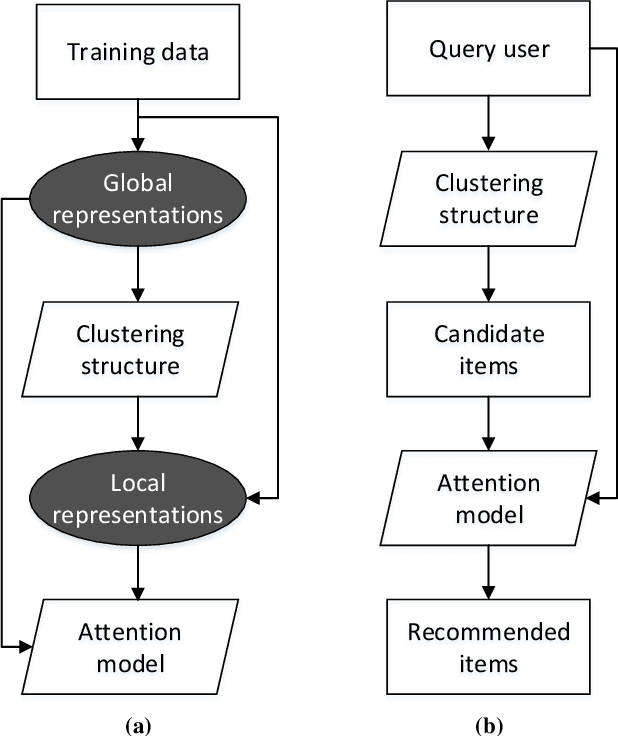Attention on Global-Local Embedding Spaces in Recommender Systems
Paper and Code
Apr 25, 2021



In this study, we present a novel clustering-based collaborative filtering (CF) method for recommender systems. Clustering-based CF methods can effectively deal with data sparsity and scalability problems. However, most of them are applied to a single embedding space, which might not characterize complex user-item interactions well. We argue that user-item interactions should be observed from multiple views and characterized in an adaptive way. To address this issue, we leveraged the relation between global space and local clusters to construct multiple embedding spaces by learning variant training datasets and loss functions. An attention model was then built to provide a dynamic blended representation according to the relative importance of the embedding spaces for each user-item pair, forming a flexible measure to characterize variant user-item interactions. Substantial experiments were performed and evaluated on four popular benchmark datasets. The results show that the proposed method is effective and competitive compared to several CF methods where only one embedding space is considered.
 Add to Chrome
Add to Chrome Add to Firefox
Add to Firefox Add to Edge
Add to Edge